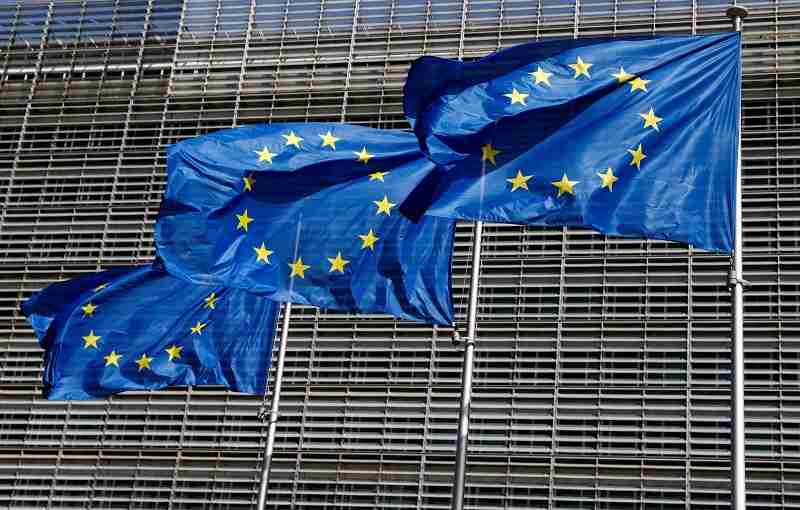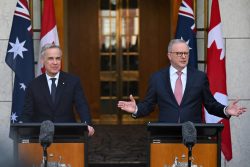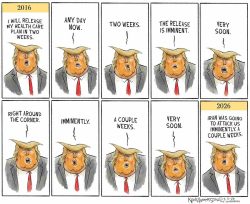
European Union flags flutter outside the EU Commission headquarters in Brussels on June 17.
12:13 JST, September 17, 2022
BRUSSELS (Reuters) – Media groups seeking to take over smaller rivals will have to make sure that their deals ensure media pluralism and safeguard editorial independence under draft rules announced by the European Commission on Friday.
The Media Freedom Act (MFA) is part of the European Union’s strategy to prevent political interference in media outlets and spying on journalists and ensure transparent and non-discriminatory state advertising to media outlets.
The proposed rules come amid worries about media freedom in Hungary, Poland and Slovenia.
“Democracy will work only if journalists have the means and the necessary protection to keep in check those in power and those with power, be it political or economic actors,” Commission Vice President Vera Jourova told a news conference.
The rules will apply to TV and radio broadcasters, on-demand audiovisual media services, press publications and very large online platforms and providers of video-sharing platforms.
The rules which set out safeguards against the use of spyware against media, journalists and their families, will need to be thrashed out with EU countries and lawmakers.
The Association of Commercial Television and Video on Demand Services in Europe (ACT), whose members include Sky, Canal+, ITV ITV.L, NBCUniversal and Virgin Media Television, urged caution about putting in additional hurdles to media mergers.
“There is also a risk of impacting existing competition frameworks, thereby preventing legitimate consolidation in order to better compete with tech giants,” it said.
Tech lobbying group CCIA Europe, whose members include Google GOOGL.O, Meta META.O and Twitter TWTR.N, criticized a provision forcing online platforms to accept on their platforms any organization that declares itself a media outlet.
“This amounts to a must-carry obligation of content for online platforms, which rogue actors could exploit to disseminate abusive, extremist, or illegal content as well as disinformation, such as Russian propaganda, under the pretense of sharing news,” it said.
Top Articles in News Services
-

Survey Shows False Election Info Perceived as True
-

Hong Kong Ex-Publisher Jimmy Lai’s Sentence Raises International Outcry as China Defends It
-

Japan’s Nikkei Stock Average Falls as US-Iran Tensions Unsettle Investors (UPDATE 1)
-

Japan’s Nikkei Stock Average Touches 58,000 as Yen, Jgbs Rally on Election Fallout (UPDATE 1)
-

Japan’s Nikkei Stock Average Rises on Tech Rally and Takaichi’s Spending Hopes (UPDATE 1)
JN ACCESS RANKING
-

Producer Behind Pop Group XG Arrested for Cocaine Possession
-

Japan PM Takaichi’s Cabinet Resigns en Masse
-

Man Infected with Measles Reportedly Dined at Restaurant in Tokyo Station
-

Israeli Ambassador to Japan Speaks about Japan’s Role in the Reconstruction of Gaza
-

Videos Plagiarized, Reposted with False Subtitles Claiming ‘Ryukyu Belongs to China’; Anti-China False Information Also Posted in Japan




























